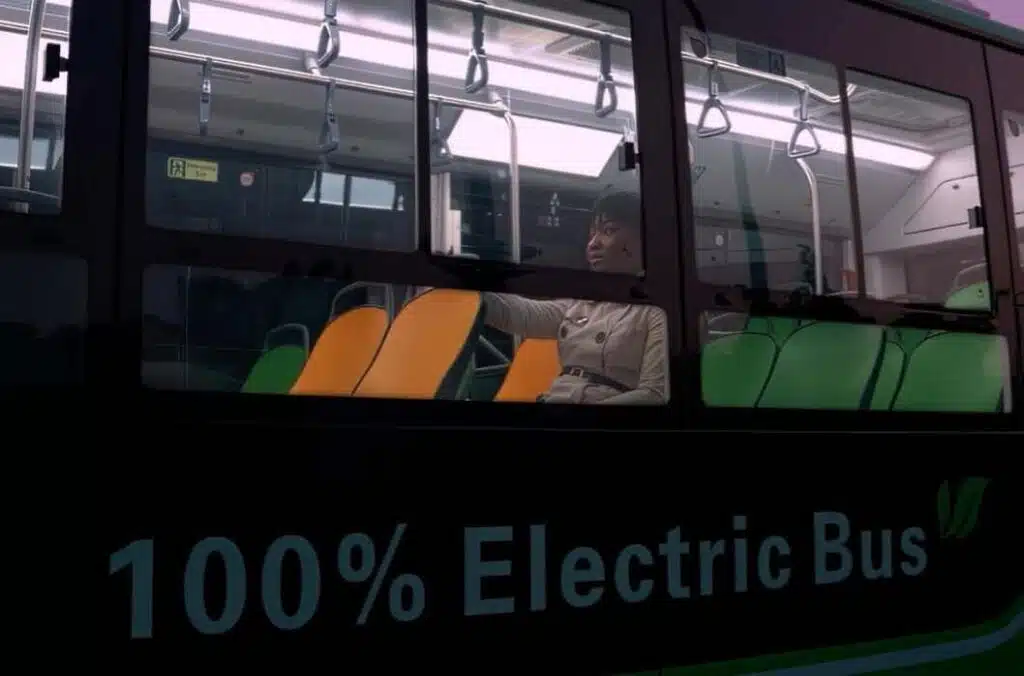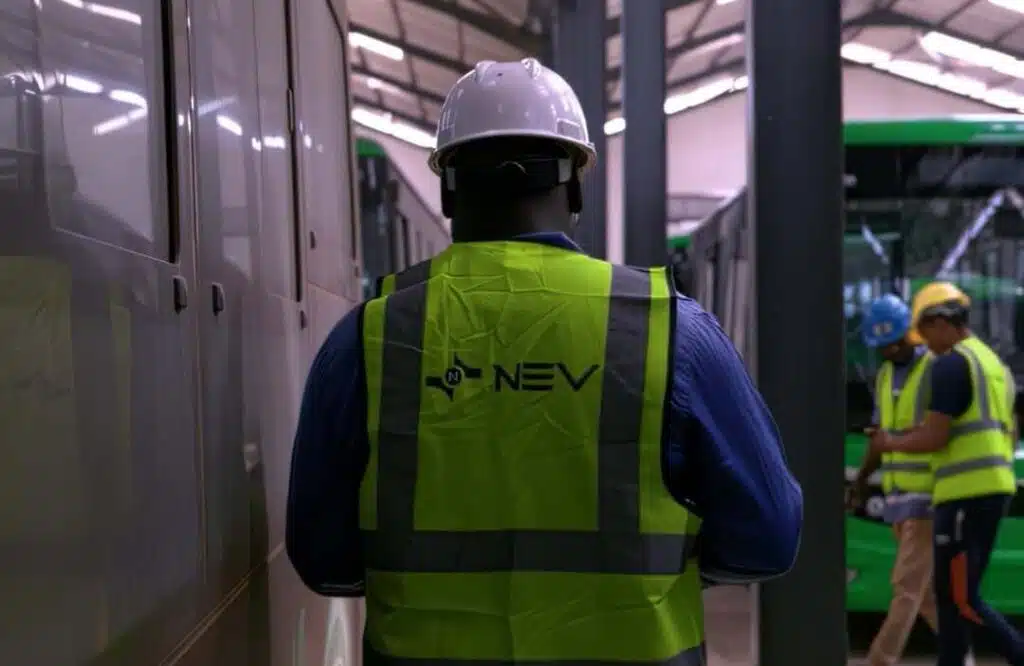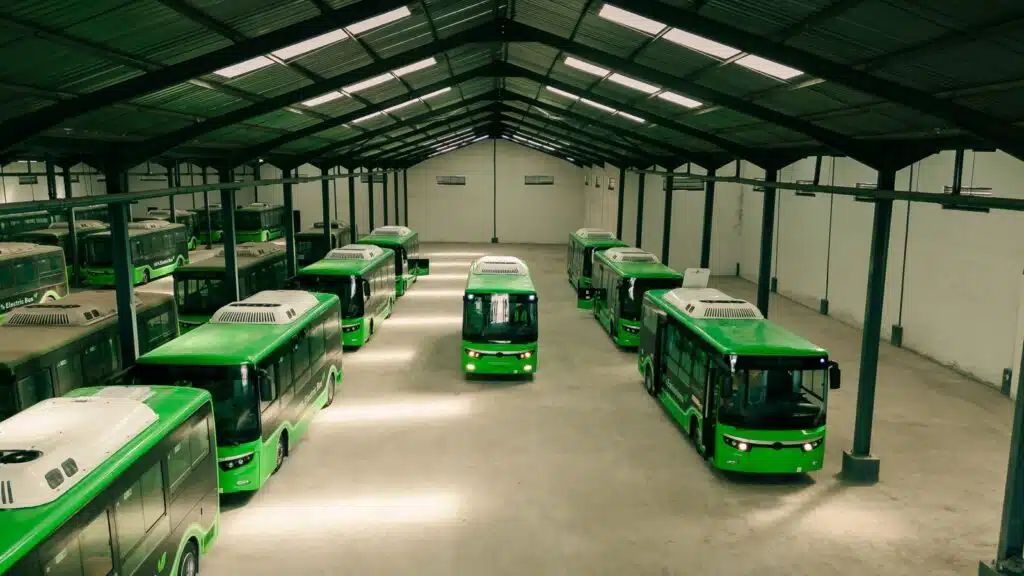There is a significant lack of data on the adoption of electric vehicles (EVs) across Africa. However, if you ask Mosope Olaosebikan, CEO of NEV Electric, he’ll put the number of EVs on Nigerian roads at 5,000 including high-capacity EVs and micro EVs such as two-wheelers and three-wheelers.
This figure is considerably higher than the projected 2,200 EV sales for Africa by 2027. Olaosebikan notes that EV adoption, particularly for micro EVs, has been more rapid than expected, not just in Nigeria but across the continent.
Data from the National Association of Automobile Manufacturers of South Africa (NAAMSA) supports his claim, showing that 3,042 EVs were sold in South Africa in the first quarter of 2024.
Nigerian EV company, Spiro, also claims to have a fleet of 22,000 EV bikes across seven African countries including Ghana, XYZ, and Togo.
Although EV sales in Africa have exceeded projections, they remain low compared to leading markets like the United States and China. However, EV startups are seeing significant growth. Olaosebikan revealed to Techpoint Africa that NEV Electric generated $14 million in revenue over the past 14 months and is projected to reach $50 million in the next 15 months.
He also said that NEV Electric is now Africa’s largest producer of mass transit EV buses, having manufactured 100 buses, surpassing BasiGo’s 52.

Is Africa’s EV market becoming lucrative?
NEV Electric is the manufacturing arm of Possible EVs, which focuses on EV experience centres and after-sales services. Despite reaching $14 million in revenue after three years of operation, profitability is not yet a priority.
“At this early stage, it is not about profit but building for the long term. Our focus is on developing the right infrastructure to ensure sustainability,” Olaosebikan explained.
The company plans to install 300 charging stations in Abuja and Lagos by August 2025. It has already assembled 100 stations, though they have not yet been installed. NEV Electric’s subsidiary, Charging as a Service (CAAS), is assembling these stations locally to help alleviate range anxiety — a major concern for Nigerians considering EV adoption.

Victoria Fakiya – Senior Writer
Techpoint Digest
Stop struggling to find your tech career path
Discover in-demand tech skills and build a standout portfolio in this FREE 5-day email course
To build a strong infrastructure, NEV Electric is reinvesting its earnings back into the business. However, this alone is not sufficient, and the company has secured debt and equity funding from investors, which they said will be announced later.
Funding remains one of the major challenges for NEV Electric and the EV manufacturing industry as a whole.
“We need cheaper financing. The current interest rates from banks are about 30%, which is not competitive globally and significantly increases production costs,” Olaosebikan said.
Financing is crucial not just for manufacturers but also for consumers. Olaosebikan believes accessible car financing is key to improving EV adoption in Nigeria. Some EV companies, particularly those focused on micro EVs, have already addressed this challenge. For example, Max offers a rent-to-own model that allows transport operators to lease EV bikes and eventually own them. While this model is not yet viable for high-capacity personal EVs due to their high cost, it is driving micro EV adoption in Nigeria and Africa.
Addressing range anxiety

Beyond financing, another major challenge for NEV Electric and other EV companies is customer range anxiety — the fear that an EV battery will die unexpectedly. Olaosebikan addressed this concern with a question:
“Would you put an internal combustion engine (ICE) vehicle on the road with an empty tank?”
Having driven EVs in Nigeria for two years, he believes the misconceptions about them are widespread. One of his EVs has a range of 600 kilometres (km), while an average ICE SUV has a range of about 300 km on a full tank. This means an ICE vehicle is more likely to run out of fuel than an EV.
However, ICE vehicles are easier to refuel than EVs. While Olaosebikan acknowledges the lack of charging infrastructure as a valid concern, he points out that indoor EV chargers are sufficient for many users. Derek Ewelukwa, CEO of Jet Motors, who also uses an EV in Nigeria, agrees that they can be practical even with limited charging infrastructure.
NEV Electric’s plans

While EVs can function with minimal charging infrastructure, a well-developed charging network is still essential for widespread adoption. Even in the US, range and charging anxiety remain major barriers to EV adoption.
Beyond installing 300 charging stations in Lagos and Abuja over the next 15 months, NEV Electric also plans to invest in education and advocacy to correct misconceptions about EVs. This initiative will support the company’s goal of manufacturing 2,000 high-capacity EVs and 10,000 micro EVs by the end of 2025.
Olaosebikan shared that the company is engaging with ride-hailing drivers who are in the process of switching to EVs, which he says are more affordable and cost-effective.
The company’s success is partly due to favourable EV policies by the Nigerian government. As a licensed EV manufacturer, NEV Electric benefits from tax breaks.
“Last year, I saved billions of naira in import duties due to a policy enacted by the government,” Olaosebikan revealed.
In January 2024, Nigeria exempted EVs and steel imports from VAT to encourage EV adoption. The country’s goal at COP26 is to deploy 13 million electric vehicles — 60% of its total vehicle fleet — by 2050. While this is an ambitious target, the success of startups like NEV Electric suggests it may not be entirely unrealistic.









